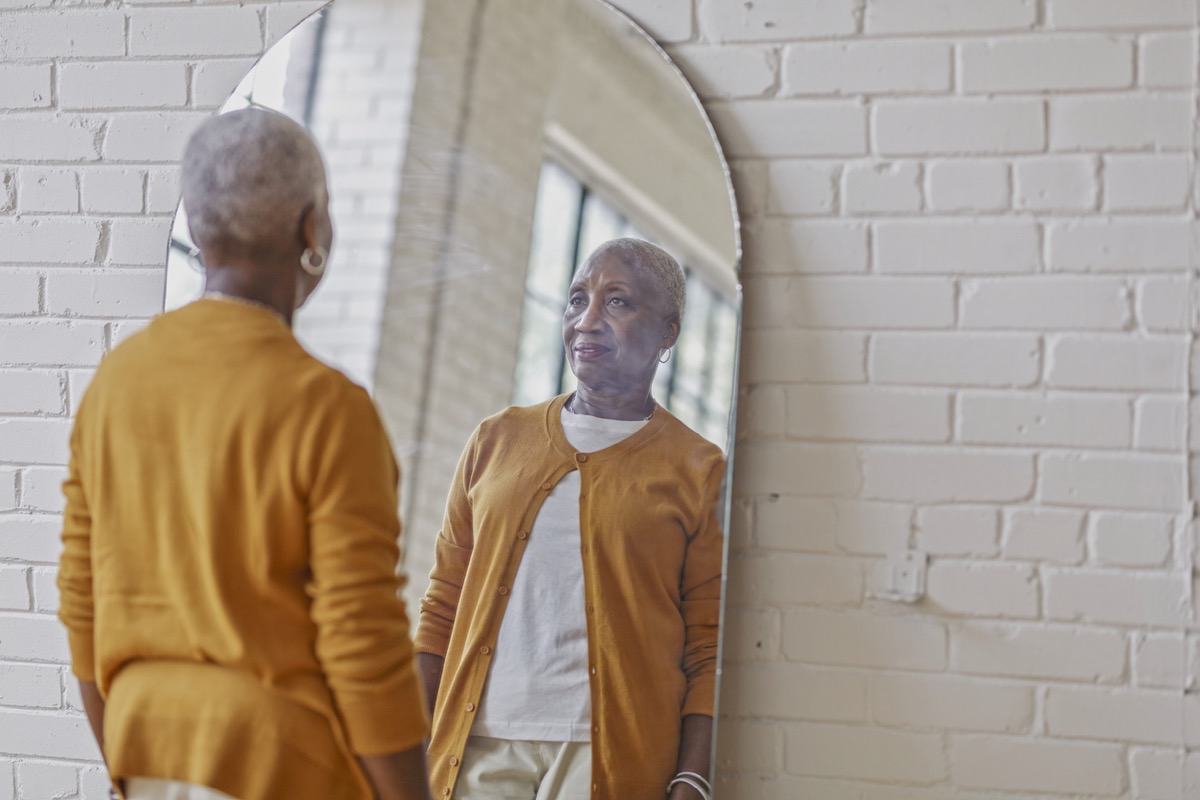8 Things Women Should Never Apologize For, Etiquette Experts Say

Whether there’s been a rift with a partner, friend, parent, child, or colleague, the best way to make amends is often with a sincere apology. In an ideal world, both parties would reflect on their own bad behavior and take responsibility for any unfavorable actions. However, studies have shown that women are more likely than men to perceive their own behavior as offensive. As a result, they’re more likely to express their regrets and apologize—a fact that can, in some cases, deepen the power imbalance that many women already experience in work and life.
“Women often use apologies to make themselves ‘less’ in front of others. Less smart, less capable, less competent,” explains Jodi RR Smith, founder of Mannersmith Etiquette Consulting. She says that beyond curbing your own needless apologies, it’s also important to stop expecting apologies from other women who have done nothing wrong, and instead focus on building mutual support.
Wondering if your own apologies are unnecessary? Read on to learn the eight things women shouldn’t apologize for, according to etiquette experts.
RELATED: 6 Questions You Should Never Ask a Woman, Etiquette Experts Say.
1
For being ambitious

When it comes to ambition in the workplace, many women experience a double standard. Though they’re expected to work as hard as their male counterparts to earn their place on the team, they’re often viewed less favorably if they’re openly ambitious.
However, Jules Hirst, founder of Etiquette Consulting, says you should never apologize for having professional goals—including those regarding finances. Just as men can strive to become team leaders or top earners without appearing greedy or ungrateful for what they have, women should be afforded the same luxury.
“Men are celebrated for their ambitions,” says Hirst. “Women should be as well.”
RELATED: 5 Things to Never Say When Arguing With Your Partner, Therapists Say.
2
For your appearance

If you’ve gained some gray hair or a few extra pounds, you may feel the need to apologize for changes in your appearance. However, Hirst says you should avoid apologies and self-deprecating comments, which can damage your self-confidence and affect how others view you.
“Society judges women’s appearance very harshly,” acknowledges Hirst. “Do not apologize for how you choose to present yourself. Take pride in your appearance and disregard the critics,” she says, adding, “Your body, your rules.”
RELATED: 7 Warnings Signs That You Have a Toxic Friendship.
3
For showing emotion

Research shows that while women and men experience the same amount of emotion, they’re perceived differently when they express those feelings. While men may be viewed as “passionate” when they’re openly emotional, women are more likely to be viewed as “irrational,” psychology experts say.
However, Hirst warns that women should never feel the need to apologize for showing a healthy range of emotion—in fact, it’s something everyone could benefit from trying themselves.
“There is nothing wrong with showing your emotions. Everyone has them,” says the etiquette expert. “Showing them does not mean you are any less professional or capable.”
RELATED: 7 Polite Ways to Deflect Rude Questions, Etiquette Experts Say.
4
For being single or childless

Personal decisions about your love life or family structure are nobody’s business but your own—which is why you should never have to apologize for being single or childless. This includes when speaking with your own family members, who may feel more invested in your personal choices or entitled to an opinion. “Your lifestyle choices are your own,” says Hirst.
RELATED: 6 Times You Should Never Hug Someone, Etiquette Experts Say.
5
For success

Oftentimes, women feel the need to apologize for their professional success or downplay the various ways they are thriving in their lives. According to Smith, one example is when women credit luck rather than hard work or talent for landing a promotion or new client.
“A lot of women have to work harder to achieve their successes,” agrees Hirst. “Take pride in them. Do not downplay them. There is nothing embarrassing about being the smartest person in the room.”
RELATED: 6 “Polite” Things You’re Doing That Are Actually Rude, Etiquette Experts Say.
6
For saying “no”

Because girls are often raised to be available, agreeable, and accommodating, it’s not uncommon for women to feel a certain amount of guilt when they have to say ‘no’ or set a firm boundary.
However, experts say it’s important to feel that you can do so unapologetically. Not only will this be beneficial to your broader mental health and well-being, but it will also allow you to fully honor and focus on the things you do agree to take on.
RELATED: 5 Easiest Ways to Flake Without Offending Someone.
7
For prioritizing self-care

For a long time, society has propagated the myth that you can have it all, and all at once. As a result, many women feel pressure to effortlessly juggle the demands of their careers, motherhood, and more.
However, experts say that it’s important for everyone—including women—to prioritize acts of self-care and that you shouldn’t feel guilty putting your own needs first sometimes. “Everyone needs to refresh and recharge. Do not apologize for taking care of yourself,” urges Hirst.
8
For other people’s feelings or insecurities

If you default to taking responsibility for other people’s feelings, this can cause a whole slew of problems in your personal life. In particular, many women feel responsible for making men feel secure and unthreatened.
However, Smith says that women should stop apologizing when they know they haven’t done anything wrong and should stop taking responsibility for things that are outside of their control. While it’s always best to be courteous and kind, your own needs still matter—and should come before the insecurities of others.
For more etiquette tips sent directly to your inbox, sign up for our daily newsletter.